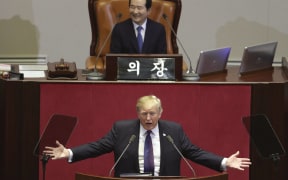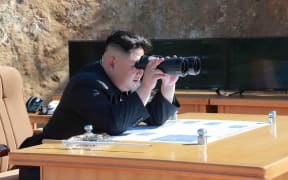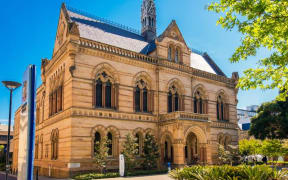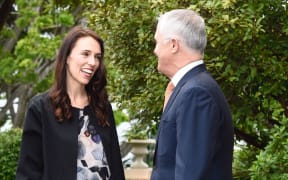Prime Minister Jacinda Ardern will stress the need for peaceful solutions to regional tensions at the East Asia Summit.
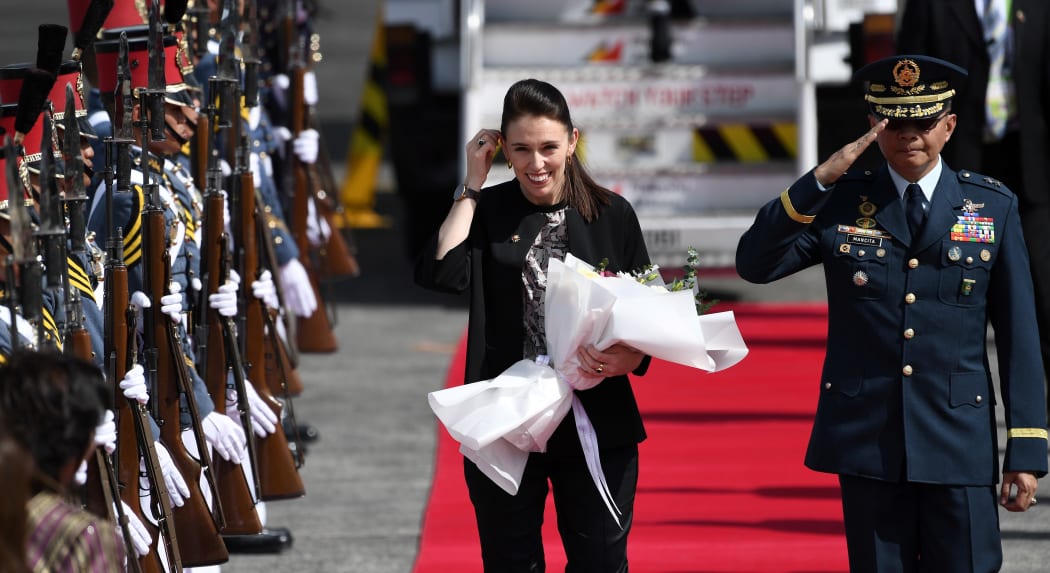
Prime Minister Jacinda Ardern arriving in the Philippines for the ASEAN summit. Photo: AFP
The forum in Manila, which traditionally focuses on regional security, brings together 18 countries; the 10-nation ASEAN grouping and eight other countries including New Zealand, China and the United States.
North Korea will dominate the discussions, but the leaders also face challenges such as territorial disputes in the South China Sea, the refugee crisis in Myanmar, and rising violent extremism.
On North Korea, Ms Ardern has echoed previous New Zealand leaders in emphasising the need for dialogue.
"Our position on North Korea remains absolutely the same.
"It does not change depending on what tweets are issued on any given day," Ms Ardern said, referring to the latest jibes traded by US President Donald Trump and North Korea.
"It's an important matter of regional security that we continue to use dialogue and pursue a de-escalation of the situation."
In a series of tweets at the weekend Mr Trump said North Korean leader Kim Jong Un had insulted him by calling him "old" and said he would never call Kim "short and fat."
Name-calling aside, Satu Lamaye, director of the East West Centre in Washington DC, said Mr Trump had had some success in trying to convince Asia to take a tougher stance against North Korea.
"He's even got the Chinese to agree with him on the new United Nations tighter sanctions. We'll have to see on that [whether China enforces them].
"But definitely, there is clearly at least public and rhetorical support for the president's tougher sanctions and tougher maximum pressure policy in many parts of the [Asian] region."
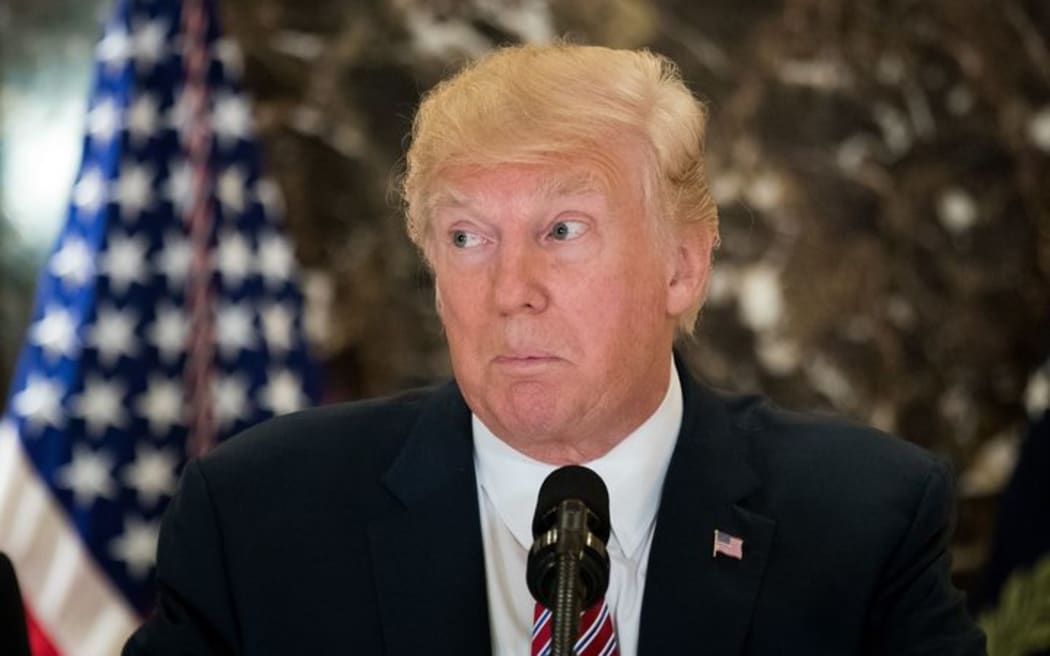
US President Donald Trump Photo: AFP
Mr Trump also volunteered his services as a past dealmaker to help mediate maritime claims in the South China Sea, which involve China, saying he was a "very good mediator".
China, Vietnam, the Philippines, Taiwan, Malaysia and Brunei have competing claims to territory in the South China Sea.
His offer is unlikely to find many, if any, takers.
The US has conducted at least four 'freedom of navigation operations' in the South China Sea during Mr Trump's presidency to demonstrate its right to sail through what it considers international waters.
Ms Ardern said New Zealand favoured a peaceful solution.
"When it comes to the South China Sea, New Zealand's position is very straightforward.
"Our view is that it is incumbent on all parties to ensure that they maintain international rule of law and that is what New Zealand will continue to promote," Ms Ardern said.
Senior lecturer in international relations at Victoria University, Jason Young, said stability in Asia mattered for New Zealand, given it contained many of the country's main export markets.
"These issues could potentially destabilise the region and make it far harder for an open economy like New Zealand to prosper."
But solving the issues has so far proved intractable.
Mr Lamaye pointed to the complexity of Asian politics, with shifting alliances meaning solutions were never straightforward.
Seasoned observers expect the East Asia Summit will produce nothing more than a non-committal joint statement.
Its real strength lies in bringing leaders together when that may have proved difficult otherwise.
Ms Ardern has a series of one-on-ones lined up on the sidelines of the summit in the Philippines.
She will meet Canada's Prime Minister Justin Trudeau, China's Premier Li Keqiang, Indian Prime Minister Narendra Modi, President Joko Widodo of Indonesia, President Rodrigo Duterte from the Philippines and the European Council president Donald Tusk.
The prime minister is also aiming to catch up with Australian counterpart Malcolm Turnbull about the Manus Island and Nauru refugees, to again offer to settle 150 of them. Mr Turnbull has repeatedly turned down New Zealand's offer.

